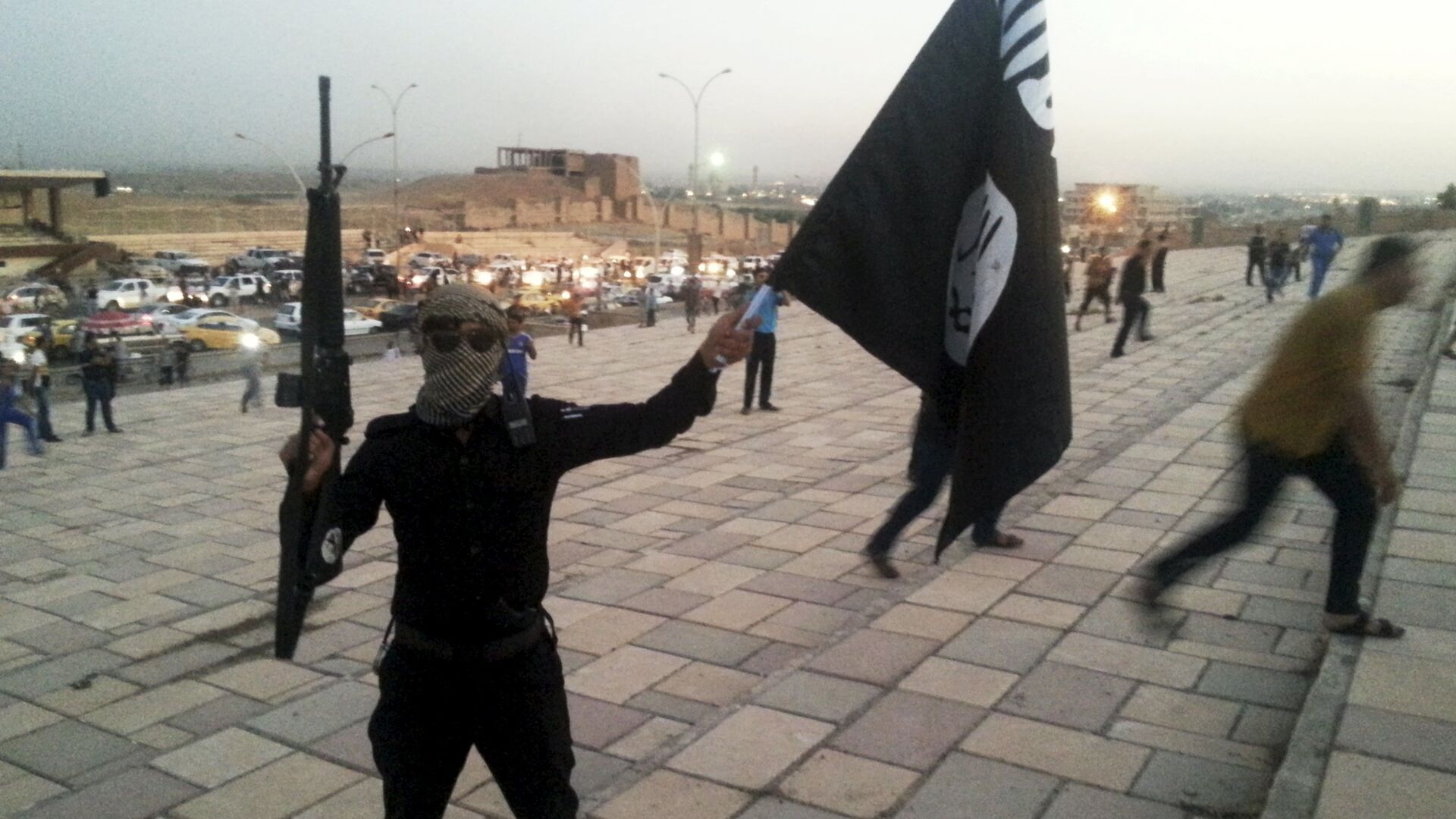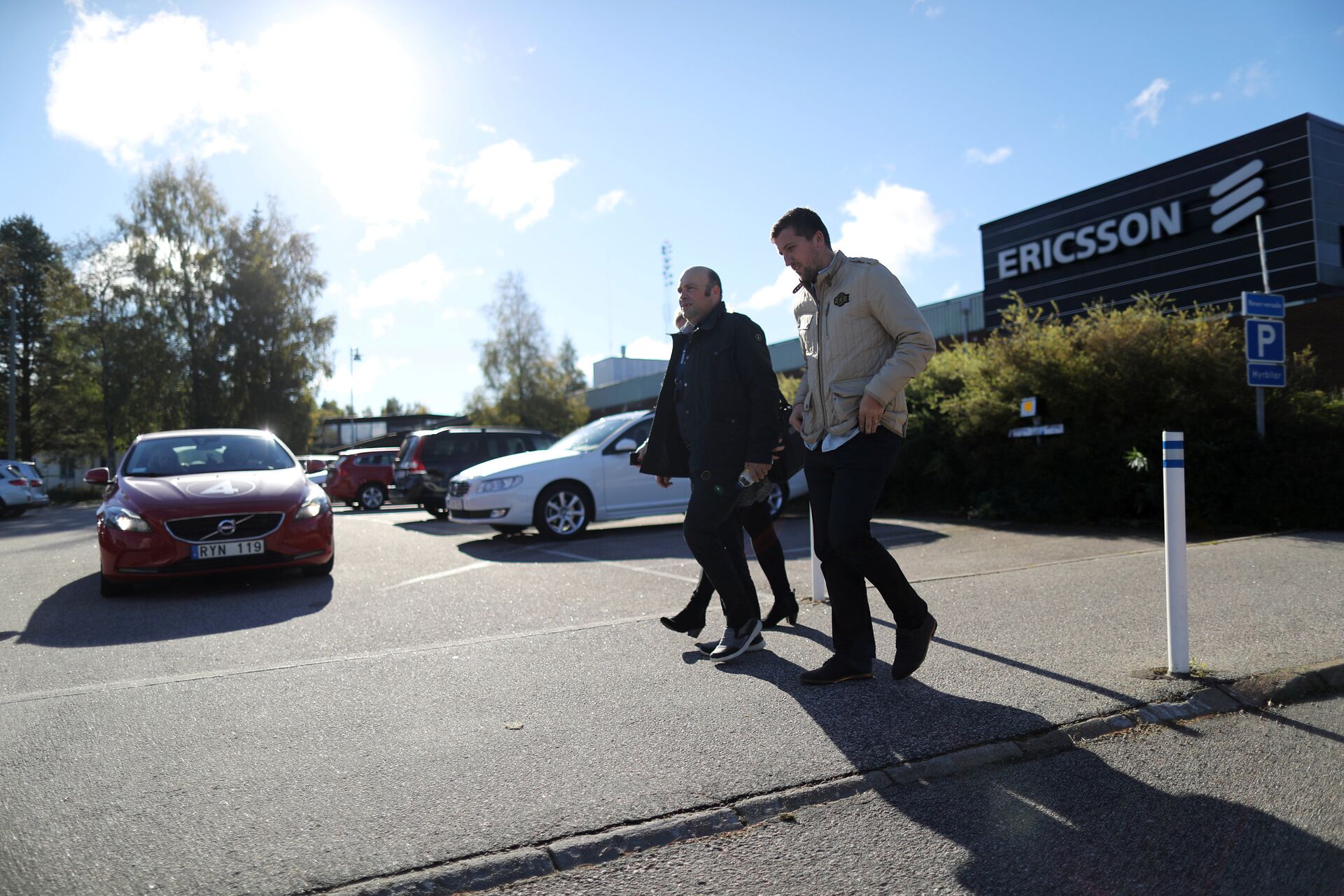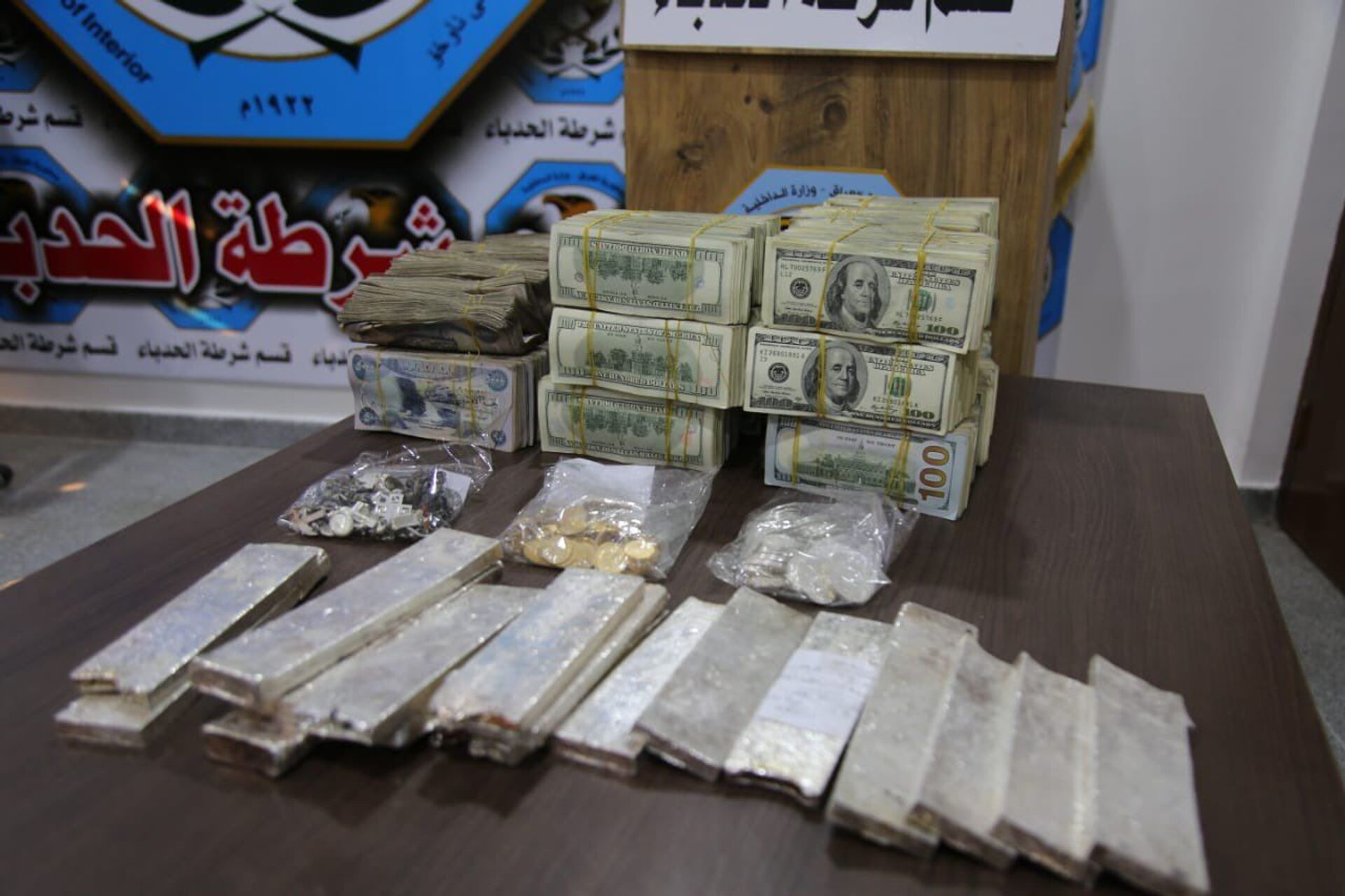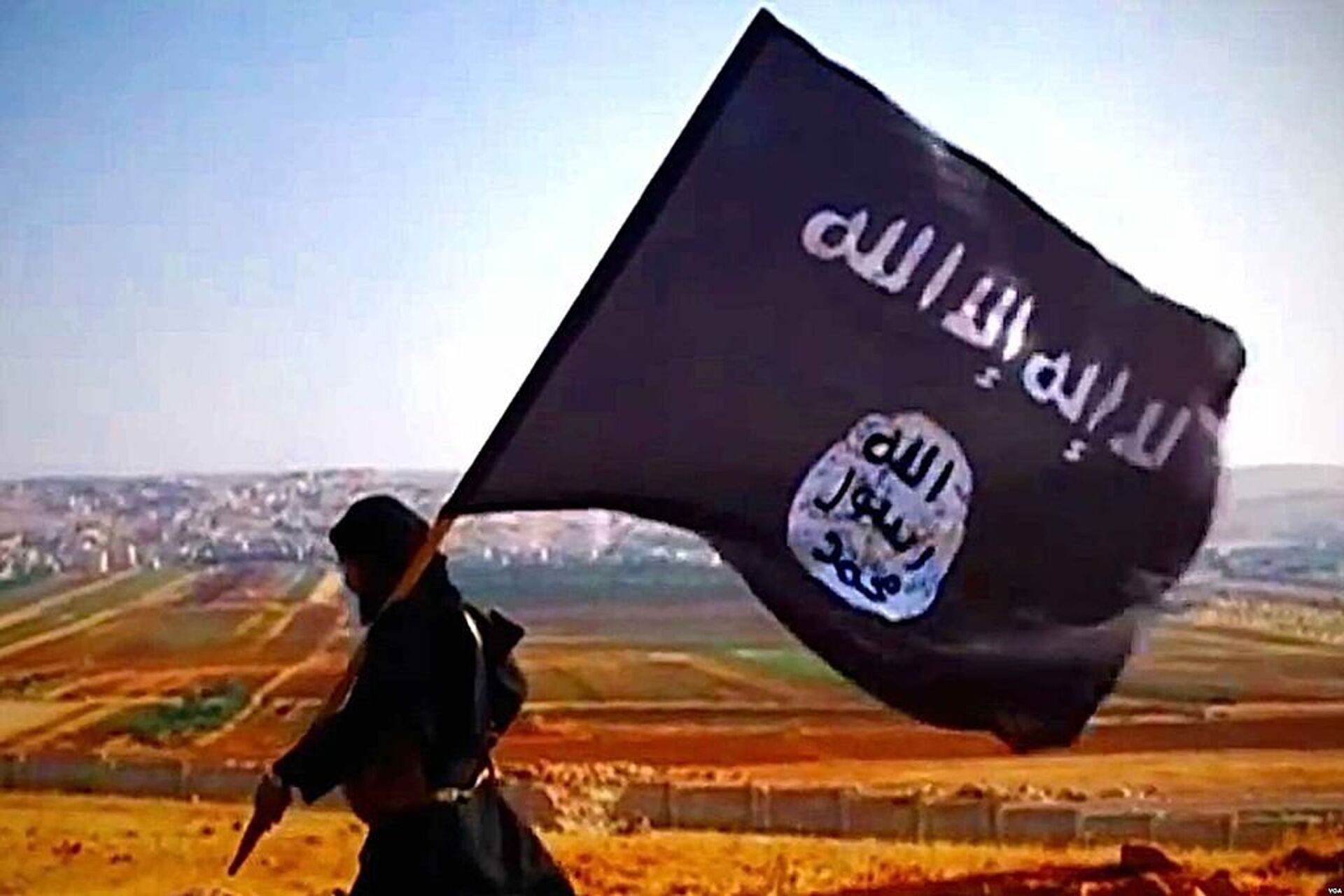https://sputnikglobe.com/20220228/bribes-fraud--embezzlement-leaked-doc-alleges-ericsson-paid-105-million-to-daesh-in-iraq-1093436336.html
‘Bribes, Fraud & Embezzlement’: Leaked Doc Alleges Ericsson Paid $10.5 Million to Daesh in Iraq
‘Bribes, Fraud & Embezzlement’: Leaked Doc Alleges Ericsson Paid $10.5 Million to Daesh in Iraq
Sputnik International
Revelations of vast management failures at Ericsson are contained in a 2019 internal report, obtained by the International Consortium of International... 28.02.2022, Sputnik International
2022-02-28T05:56+0000
2022-02-28T05:56+0000
2023-02-10T09:06+0000
ericsson
iraq
daesh
https://cdn1.img.sputnikglobe.com/img/103189/93/1031899324_0:294:3221:2106_1920x0_80_0_0_782c0a88863c5b1e3885eb2cb7aa73f7.jpg
Leaked confidential documents show how Swedish Telecoms giant Ericsson allegedly resorted to bribes to Daesh*, while imperilling its workers, in order to continue selling its services after the militants seized control of large parts of Iraq.The document, obtained by the International Consortium of International Journalists [ICIJ] and shared with media outlets such as BBC News Arabic, The Washington Post and others, dates to an internal investigation carried out in 2019 into the company’s corrupt activities in 10 countries across four continents, with its findings also highlighting dubious operations in Iraq between 2011 and 2019.To avoid prosecution over violations of the Foreign Corrupt Practices Act (FCPA), Ericsson paid almost a billion-dollar penalty in 2019 after pleading guilty to making corrupt payments through slush funds between 2000 and 2016. The deferred prosecution agreement with the US government and the admissions related to five countries: Djibouti, China, Vietnam, Indonesia and Kuwait.However, freshly-leaked documents point to alleged wrongdoing in a further 10 countries throughout the last decade, such as slush funds in Lebanon, bribes allegedly paid in Bahrain and Angola, corrupt practices during awarding of a contract in South Africa, fraudulent acquisition of a company in the US. More evidence of misconduct was purportedly discovered in Brazil, Azerbaijan, Libya and Morocco.There has not yet been any comment from Ericsson regarding potential wrongdoing in these other countries.‘Uncontrolled’ Iraq Slush FundWhile there is no mention of Iraq in Ericsson’s 2019 deferred prosecution agreement, according to the leaked documents another corruption scandal involving the company had purportedly placed its workers’ lives at dire risk. The internal probe was ostensibly triggered by a smaller inquiry focused on dubious travel and expense claims submitted by an Ericsson senior manager in Iraq.The Stockholm-headquartered telecom giant’s business in Iraq had generated an estimated $1.9 billion in revenue, according to the report, based on interviews with dozens of current or former Ericsson employees and a review of 22.5 million emails and other documents.The internally-commissioned probe had documented “a range of misconduct perpetrated by Ericsson employees and third parties” in Iraq over nearly a decade, involving “bribes and kickbacks,” “fraud and embezzlement,” and use of smuggling routes to dodge official Iraqi customs authorities.Suspicious payments were chronicled in the findings, with auditors unable to determine who pocketed almost $10.5 million, as fake purchase orders had been reported to when setting up an “uncontrolled slush fund”.The US coalition-led invasion of Iraq in 2003 had been justified by arguments that the Saddam Hussein government possessed an active weapons of mass destruction (WMD) programme. The latter fact was subsequently proven false, as no stockpiles of WMDs or an active WMD programme were ever found in Iraq.Ericsson had hoped to capitalise on the rebuilding effort that followed the 2003 invasion and occupation, including the lucrative mobile phone business, providing cell towers, software and other systems to cellphone companies that in 2007 acquired licenses from the US-backed Iraqi government. In its work, Ericsson used regional managers who enlisted local firms paid in large cash sums, according to the report.Between 2013 and 2018, Ericsson paid a consulting firm, Al-Awsat Telecommunications Services, founded by a member of a wealthy family in the semi-autonomous Kurdistan region of northern Iraq about $90 million, according to the report, with huge portions of the money ostensibly used as bribes.Even after Daesh took control of Mosul in 2014, with the militants wielding control over about 40% of Iraq, according to the investigators, Ericsson received offers from firms prepared to transport their infrastructure through Iraq, thus jeopardising their contractors in the pursuit of profits.According to emails cited in the documents, “this persistence resulted in the kidnapping of [contractors] while doing fieldwork for Ericsson”. The investigators stated that despite the kidnapping, the company persisted with business in the volatile area.The telecom firm selected a contractor that cost more than other firms, as it guaranteed swifter deliveries, something that the report referred to as a “speed way service” in contrast to “the legal way”. The document stated that “the higher cost has likely been used for bribery and payments to local [militants] along transportation routes”. Dubious payments were allegedly made to customs officials to dodge border taxes. Furthermore, investigators determined that the Ericsson infrastructure had been delivered to areas held by Daesh militias, leading them to suggest that the company may have engaged in “bribery or illegitimate payments.”Emails viewed by the probe indicated “illegal bypassing of customs and passing through IS-controlled areas in connection to transportation in Iraq.”It was, however, emphasised that there was no evidence that Ericsson employees were directly involved in any payments to Daesh.This comes as two weeks ago, Ericsson, alerted to the fact media organisations had been leaked the internal reports, released a public statement on its website, admitting to “serious breaches of compliance rules” in Iraq between 2011 and 2019, thus partially admitting to the investigators’ findings.Ericsson said the investigating team had “identified payments to intermediaries and the use of alternate transport routes in connection with circumventing Iraqi customs, at a time when terrorist organisations, including Islamic State, controlled some transport routes.”It added that investigators “could not determine the ultimate recipients of these payments.”The statement also acknowledged that Ericsson employees had engaged in widespread misconduct in Iraq and committed “serious” violations of its regulations, and it had released the statement because it was “committed to transparency”.*Daesh (ISIS/ISIL/"Islamic State") is a terrorist organisation banned in Russia and other states.
https://sputnikglobe.com/20220217/ericsson-shares-take-giant-plunge-after-suspicions-of-daesh-bribe-1093100260.html
iraq
Sputnik International
feedback@sputniknews.com
+74956456601
MIA „Rossiya Segodnya“
2022
News
en_EN
Sputnik International
feedback@sputniknews.com
+74956456601
MIA „Rossiya Segodnya“
Sputnik International
feedback@sputniknews.com
+74956456601
MIA „Rossiya Segodnya“
ericsson, iraq, daesh
‘Bribes, Fraud & Embezzlement’: Leaked Doc Alleges Ericsson Paid $10.5 Million to Daesh in Iraq
05:56 GMT 28.02.2022 (Updated: 09:06 GMT 10.02.2023) Revelations of vast management failures at Ericsson are contained in a 2019 internal report, obtained by the International Consortium of International Journalists [ICIJ] and shared with media partners, including the BBC, The Washington Post and The Guardian. The probe had focused on operations in 10 countries, including in Iraq from 2011 to 2019.
Leaked confidential documents show how Swedish Telecoms giant
Ericsson allegedly resorted to bribes to Daesh*, while imperilling its workers, in order
to continue selling its services after the militants seized control of large parts of Iraq.
The document, obtained by the International Consortium of International Journalists [ICIJ] and
shared with media outlets such as BBC News Arabic, The Washington Post and others, dates to an internal investigation carried out in 2019 into the company’s corrupt activities in 10 countries across four continents, with its findings also highlighting dubious operations in Iraq between 2011 and 2019.
To avoid prosecution over violations of the Foreign Corrupt Practices Act (FCPA), Ericsson paid almost a billion-dollar penalty in 2019 after pleading guilty to making corrupt payments through slush funds between 2000 and 2016. The
deferred prosecution agreement with the US government and the admissions related to five countries: Djibouti, China, Vietnam, Indonesia and Kuwait.
However, freshly-leaked documents point to alleged wrongdoing in a further 10 countries throughout the last decade, such as slush funds in Lebanon, bribes allegedly paid in Bahrain and Angola, corrupt practices during awarding of a contract in South Africa, fraudulent acquisition of a company in the US. More evidence of misconduct was purportedly discovered in Brazil, Azerbaijan, Libya and Morocco.
There has not yet been any comment from Ericsson regarding potential wrongdoing in these other countries.
‘Uncontrolled’ Iraq Slush Fund
While there is no mention of Iraq in Ericsson’s 2019 deferred prosecution agreement, according to the leaked documents another corruption scandal involving the company had purportedly placed its workers’ lives at dire risk. The internal probe was ostensibly triggered by a smaller inquiry focused on dubious travel and expense claims submitted by an Ericsson senior manager in Iraq.
The Stockholm-headquartered telecom giant’s business in Iraq had generated an estimated $1.9 billion in revenue, according to the report, based on interviews with dozens of current or former Ericsson employees and a review of 22.5 million emails and other documents.
The internally-commissioned probe had documented “a range of misconduct perpetrated by Ericsson employees and third parties” in Iraq over nearly a decade, involving “bribes and kickbacks,” “fraud and embezzlement,” and use of smuggling routes to dodge official Iraqi customs authorities.
Suspicious payments were chronicled in the findings, with auditors unable to determine who pocketed almost $10.5 million, as fake purchase orders had been reported to when setting up an “uncontrolled slush fund”.
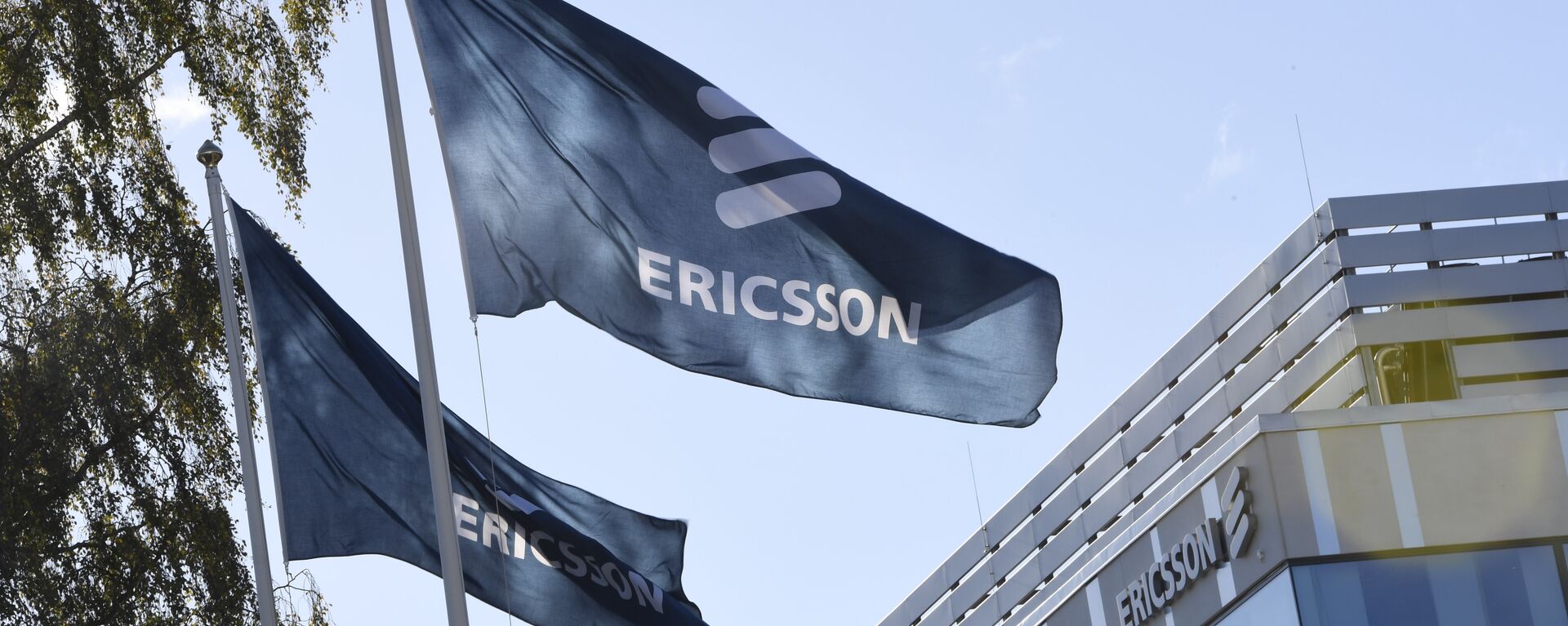
17 February 2022, 05:00 GMT
The US coalition-led invasion of Iraq in 2003 had been justified by arguments that the Saddam Hussein government possessed an active weapons of mass destruction (WMD) programme. The latter fact was subsequently proven false, as no stockpiles of WMDs or an active WMD programme were ever found in Iraq.
Ericsson had hoped to capitalise on the rebuilding effort that followed the 2003 invasion and occupation, including the lucrative mobile phone business, providing cell towers, software and other systems to cellphone companies that in 2007 acquired licenses from the US-backed Iraqi government. In its work, Ericsson used regional managers who enlisted local firms paid in large cash sums, according to the report.
Between 2013 and 2018, Ericsson paid a consulting firm, Al-Awsat Telecommunications Services, founded by a member of a wealthy family in the semi-autonomous Kurdistan region of northern Iraq about $90 million, according to the report, with huge portions of the money ostensibly used as bribes.
Even after Daesh took control of Mosul in 2014, with the militants wielding control over about 40% of Iraq, according to the investigators, Ericsson received offers from firms prepared to transport their infrastructure through Iraq, thus jeopardising their contractors in the pursuit of profits.
According to emails cited in the documents, “this persistence resulted in the kidnapping of [contractors] while doing fieldwork for Ericsson”. The investigators stated that despite the kidnapping, the company persisted with business in the volatile area.
The telecom firm selected a contractor that cost more than other firms, as it guaranteed swifter deliveries, something that the report referred to as a “speed way service” in contrast to “the legal way”. The document stated that “the higher cost has likely been used for bribery and payments to local [militants] along transportation routes”.
Dubious payments were allegedly made to customs officials to dodge border taxes. Furthermore, investigators determined that the Ericsson infrastructure had been delivered to areas held by Daesh militias, leading them to suggest that the company may have engaged in “bribery or illegitimate payments.”
Emails viewed by the probe indicated “illegal bypassing of customs and passing through IS-controlled areas in connection to transportation in Iraq.”
“There were numerous interviews stating it was more important to do business and deliver to customers, than ensuring the transportations were conducted according to laws and regulations,” said investigators.
It was, however, emphasised that there was no evidence that Ericsson employees were directly involved in any payments to Daesh.
This comes as two weeks ago, Ericsson, alerted to the fact media organisations had been leaked the internal reports, released a public statement on its website, admitting to “serious breaches of compliance rules” in Iraq between 2011 and 2019, thus partially admitting to the investigators’ findings.
Ericsson said the investigating team had “identified payments to intermediaries and the use of alternate transport routes in connection with circumventing Iraqi customs, at a time when terrorist organisations, including Islamic State, controlled some transport routes.”
It added that investigators “could not determine the ultimate recipients of these payments.”
The statement also acknowledged that Ericsson employees had engaged in widespread misconduct in Iraq and committed “serious” violations of its regulations, and it had released the statement because it was “committed to transparency”.
*Daesh (ISIS/ISIL/"Islamic State") is a terrorist organisation banned in Russia and other states.
